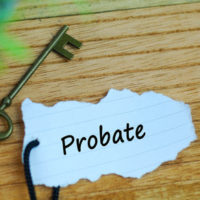Providing Notice To Creditors For Probate

When someone passes away, processing their estate can be a confusing undertaking, especially if the estate must go through probate. One of the major steps in the probate process is dealing with the deceased person’s obligations, and Florida law sets out a specific procedure for doing this, beginning with publishing a Notice to Creditors. The Notice helps to eliminate any debts from the estate, which allows the net assets to be distributed to the heirs.
Publishing The Notice
A person’s creditor in life becomes a probate creditor upon that person’s passing, and if possible, those creditors have a right to have their debts repaid. However, this is not possible if they are uninformed of the person’s passing. Thus, Florida law requires that the personal representative of the deceased’s estate is required to publish a notice, usually in local newspapers, once a week for at least two weeks. That notice must contain certain specific criteria, including:
- The name of the decedent and the identifying information of the estate;
- The relevant information regarding the court in which the probate proceeding will take place;
- The name and address of the estate’s personal representative (PR) and the PR’s attorney; and
- The date of the first publication of the notice, so creditors are aware of how long they have in which to bring claims.
The notice must be published in newspapers in the county where the probate proceeding will occur, but may also be published elsewhere, especially if a creditor is known to reside or do business there. The publication requirement is a convenient way to notify as many people as possible, as well as attempting to contact creditors that the personal representative may as yet be unaware of.
Dealing With Individual Creditors
While publishing the notice is the way that is best suggested to reach all creditors of an estate, the law does mandate that a copy be mailed individually to each “reasonably ascertainable” creditor, so as to give them the most time possible in which to bring their claim before the estate. This is important not only for the creditor’s rights, but also for the estate itself, because the date upon which the notice is mailed (postmarked) to a creditor marks the beginning of the period in which they can bring claims. That way if there is any dispute as to a creditor’s claim, the dates during which it can be heard are clearly delineated (generally, the period runs for three months after the date of the notice).
Generally, a creditor’s claim will be paid out of the value of the decedent’s assets. If there is not enough to pay creditors, the estate is said to be insolvent. An insolvent estate will have to sell off assets, possibly including those promised to heirs, in order to pay off creditors, though it is important to keep in mind that secured creditors will be paid before unsecured creditors, meaning that certain debts may be prioritized by the personal representative in terms of who gets paid first.
Contact A Probate Attorney
Losing a loved one is difficult enough without running the risk of potential problems with the estate. If you need assistance in reaching a loved one’s creditors or have other questions regarding the probate of their estate, the Hollywood probate attorneys at the Law Offices of Steven A. Mason, P.A. may be able to help. Contact the Fort Lauderdale and Hollywood Law Offices of Steven A. Mason, P.A. for legal advice at 954-963-5900 or leave a message online.
Resources:
leg.state.fl.us/statutes/index.cfm?App_mode=Display_Statute&URL=0700-0799/0733/Sections/0733.2121.html
leg.state.fl.us/STATUTES/index.cfm?App_mode=Display_Statute&URL=0700-0799/0733/Sections/0733.705.html
